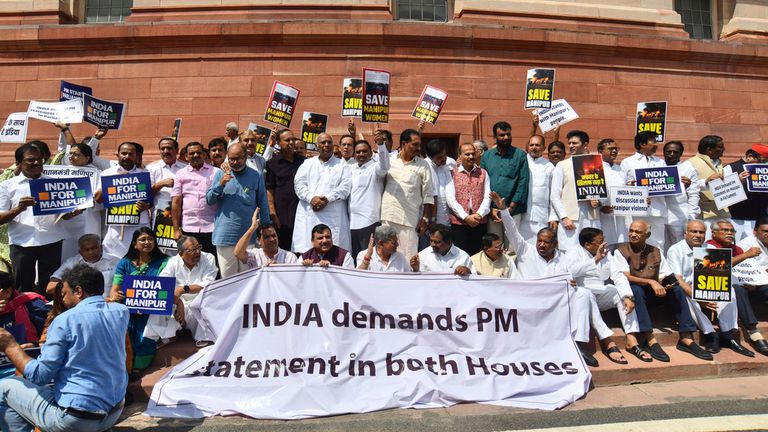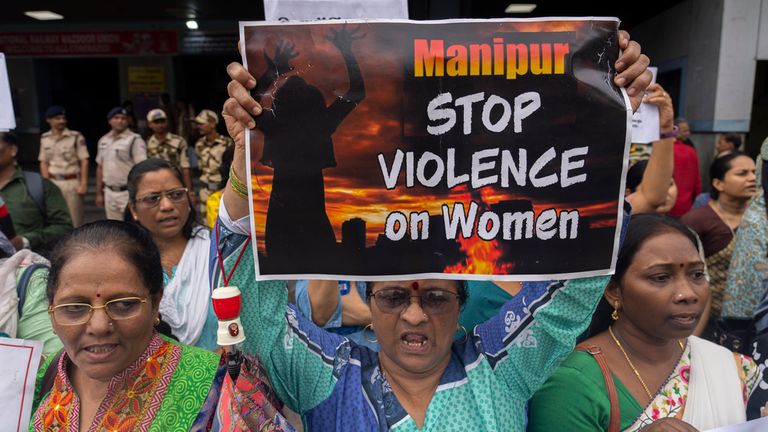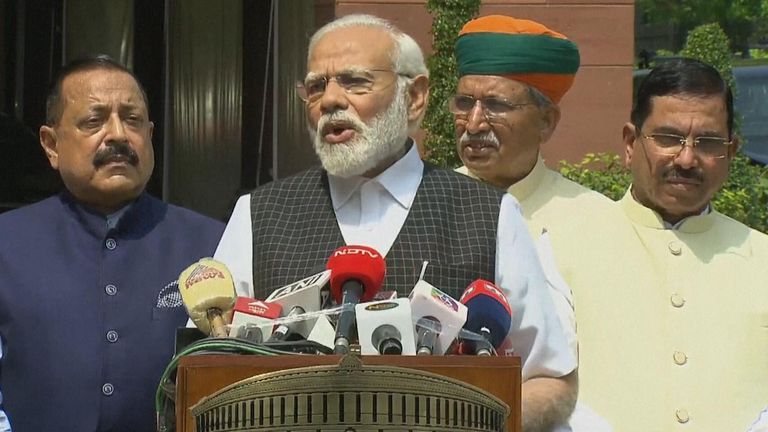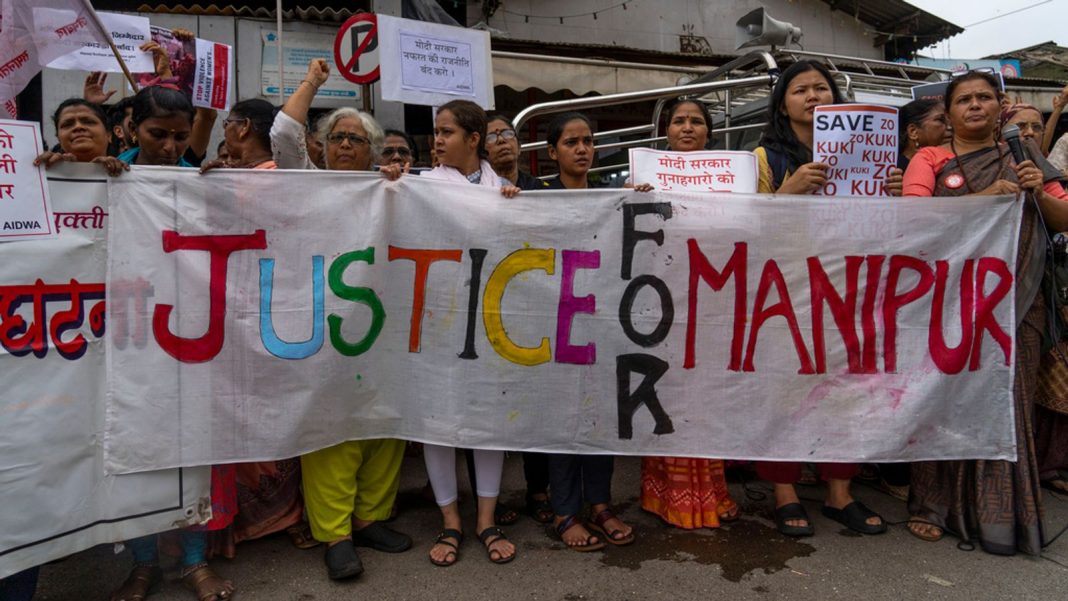Protests have rocked the Indian parliament for a third consecutive day over ethnic clashes in the northeastern state of Manipur.
More than 130 people have been killed and thousands have been injured in the northeastern state since May.
Indian Prime Minister Narendra Modi openly condemned an incident in May which saw women from the Kuki-Zomi tribe paraded naked and groped.
Please use Chrome browser for a more accessible video player
2:17
Manipur video causes outrage in India
However, Mr Modi has failed to speak out about the clashes between the politically-dominant Meitei Hindu community of the valley and the Christian Kuki-Zomi tribals who live in the hills.
The demonstrations outside parliament prompted Indian Home Minister Amit Shah to break his silence on the matter. He said he was ready for a “discussion” with the opposition Congress party on the matter.

Pic: AP

Pic: AP
“I request the opposition to let a discussion take place on this issue. It is important that the country gets to know the truth on this sensitive matter,” he added.
However, both houses of parliament were forced to adjourn as the opposition demanded a statement from Mr Modi.
Please use Chrome browser for a more accessible video player

0:26
Manipur: ‘My heart is full of pain’
Congress leader Mallikarjun Kharge tweeted it was Modi’s “duty to make a comprehensive statement inside the Parliament on Manipur violence”.
Over the weekend, 15,000 people protested in Manipur over the May assault, also calling for the firing of the state’s Chief Minister Biren Singh.
Four men were arrested in connection to the incident involving the two women.
Read more:
Global rice shortages feared after India bans exports
India launches space mission to far side of the moon
Meanwhile, tensions between the two Manipur communities started when the state high court, on the government’s recommendation, gave the Meitei ‘tribal’ status – entitling them to the same benefits and quotas as the minority Kuki-Zomi.
The Kukis argued this would reinforce the Meitei’s strength in the region, and could lead to them buying and settling on their land.
Over 60,000 people from both communities have been displaced and many live in relief camps.
Hundreds of homes, businesses, churches and Hindu temples have also been burned down.
Some 10,000 army and paramilitary soldiers have been deployed across the state to restore law and order. Curfew and restrictions on movement have been put in place in sensitive areas.
Further protests against the violence have also taken place in Kashmir and Kolkata.







